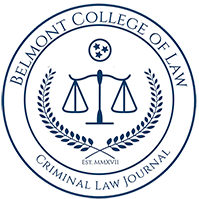State of Tennessee v. Douglas E. Linville, No. W2019-02180-SC-R11-CD (June 1, 2022).
Written By: Hunter Lindsey, Associate Editor
Tennessee Code Annotated § 39-17-432 heightened the penalty for drug offenses committed in “drug-free zones,” requiring that the sentence be subject to a one-level classification increase (i.e., Class D felony to a Class C felony) and required a sentence of at least the minimum time suggested by Tennessee’s sentencing guidelines. Drug-free zones were initially 1,000 feet areas around schools, but the Tennessee legislature added public parks to the statute in 2005 with the caveat that convictions near public parks were not subject to the one-level enhancement.
On June 4, 2018, Douglas Linville’s home was searched by police, who found various scheduled substances and drug paraphernalia. Linville’s home was within 1,000 feet of a drug-free zone, and a public park, subjecting him to heightened penalties under Tennessee law. Linville was convicted of five counts, three of which were relevant to this case: counts one and two were for possessing Schedule II controlled substances (methamphetamine and hydrocodone), and count three was for possessing a Schedule IV controlled substance (Xanax).
Counts one and two, given Linville’s criminal history, had a sentence range of 10-15 years. Linville was sentenced to 12 years imprisonment on both counts to be served concurrently. Count three was given two disparate sentences – a 12-year sentence at the sentencing hearing and an 8-year sentence on the written judgment. This occurred because the parties incorrectly informed the court that count three was a Class C felony like counts one and two when possession of Xanax is actually a Class D felony with a sentence range of 8-12 years.
Linville appealed his conviction, attacking the sufficiency of the evidence, and did not dispute his sentence. The Court of Criminal Appeals affirmed the convictions on this issue. However, Linville had identified the disparity in the sentence imposed by the trial court in person in comparison with the written judgment. The appellate court affirmed the sentence as well, reversing only to direct the trial court to correct the judgment and mark count 3 as a Class C felony. It justified this decision based on the one-level enhancement provision.
Linville appealed this decision, arguing that the appellate court misinterpreted T.C.A. § 39-17-432 and the legislature did not intend for drug convictions near public parks to be subject to either the one-level enhancement or the mandatory minimum requirement. While the appellate court addressed the former issue, Linville argued the latter issue was reviewable as a plain error.
The first issue in the case is the following: Does T.C.A. § 39-17-432’s one-level enhancement provision apply to drug offenses occurring within 1,000 feet of a public park? The Supreme Court of Tennessee held that the answer to this question is no.
T.C.A. § 39-17-432(b), which provides for a one-level enhancement, was amended in 2005 to prohibit any increase in incarceration as a result of that section where the drug offense was committed within 1,000 feet of a public park. Accordingly, Linville’s conviction for possession of a Schedule IV substance could not be sentenced as a Class C felony, as the appellate court held, but as a Class D felony, which had a range of 8-12 years, not 10-15.
The second issue in this case is the following: Does the mandatory minimum provision apply to drug offenses occurring within 1,000 feet of a public park? The Supreme Court of Tennessee held that the answer to this question is yes.
Because Linville did not challenge the mandatory minimum provision at the appellate level, the Supreme Court may only address this issue if it is a plain error. The plain error doctrine permits courts to consider issues not properly preserved if: (1) the record clearly reflects the error (2) a clear and unequivocal rule of law was breached, (3) a substantial right of the accused was adversely affected, (4) the issue wasn’t waived for a tactical purpose, and (5) justice requires the error to be considered.
The plain language of § 39-17-432 evinced an intent for mandatory minimum and enhanced sentences and the mandatory minimum provisions in subsections (c) through (e) were self-contained and unaffected by the modifications in subsection (b). Based on that language, § 39-17-432 contains no clear and unequivocal rule of law prohibiting the imposition of mandatory minimum sentences for drug offenses committed within 1,000 feet of a public park, and therefore the plain error doctrine doesn’t rehabilitate Linville’s failure to preserve any issue for appeal concerning the mandatory minimum provision.
Accordingly, because count three had a mandatory minimum of eight years and a suggested maximum of 12 years, the trial court’s sentence of 12 years imprisonment for counts one through three, served concurrently, was not in violation of T.C.A. § 39-17-432 and is affirmed.
This case demonstrates just how difficult it is for the plain error doctrine to win the day on appeal. Courts are hesitant to apply the plain error doctrine and will stop as soon as an element of the doctrine isn’t met, just as the Tennessee Supreme Court did in this case. Accordingly, attorneys need to be vigilant when looking for issues they foresee having any potential for appeal, even if it seems like a longshot. The Court in this case could have dived deeper into other issues related to mandatory minimum sentences, like the rule of leniency or any specific constitutional issues arising out of the Tennessee state constitution but could and would not do so because the defendant had not preserved the issue for appeal. While the Court noted that Linville was able to appeal any aspect of his sentence, it also noted that Linville’s failure to appeal, not object to it at the sentencing hearing, prevented deeper consideration of the mandatory minimum issue. Perhaps bringing up too many issues in one appeal risks wearing out the appellate court’s good will, but in this case, taking that risk could have resulted in a fundamentally different decision.
